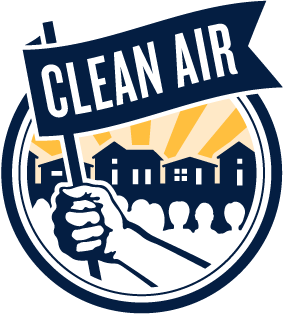Rebuttal to the Another Voice Column from Blockfusion Representative in The Buffalo News
In rebuttal to this column published in The Buffalo News on March 1 from Blockfusion, we submitted the following rebuttal to the Another Voice section, but it unfortunately was not accepted for print, so we are instead publishing it here to our blog.
The Clean Air Coalition of WNY disagrees strongly with the assertions made in the March 1 letter from Blockfusion representative Alex Martini-LoManto.
Blockfusion, like the vast majority of blockchain validation operations, relies on Proof-of-Work verification, which, in short, is a competitive process that uses computers to brute-force solve an equation in a winner-takes-all race against other Proof-of-Work blockchain operations.
This process is hugely energy intensive – the University at Cambridge estimates that the approximately 1 million blockchain validators worldwide “mining” for Bitcoin currently consume 130 TwH annually, which is more than entire nations, including Sweden, Kuwait or Argentina. To bring it closer to home, the US Energy Information Administration estimates that NY, in 2019 with 19.45 million residents and all our industries, consumed 145.6 TWh of electricity – this tiny industry with 1/19th our population size uses 89% as much!
Even more disturbingly, this rate of energy consumption is growing exponentially annually.
Not all operations rely on Proof-of-Work – some rely on Proof-of-Stake, which essentially shifts the blockchain “mining” from a competitive model to a cooperative one. Estimates by researchers at the Ethereum Foundation put the potential cut in energy consumption at 99.95%, making it ~2000x more energy-efficient than Proof-of-Work.
Blockfusion asserts that they do not rely on dirty energy, but this is not the full picture. Unlike other operations such as Digihost Technology located on the grounds of Foristar Gas Power Generation facility in North Tonawanda or the operators of Greenidge Gas Generation in nearby Dresden NY, Blockfusion will not be using existing gas-powered technologies – however, this does not mean their hands are clean.
The simple fact is that our state is constrained in our electricity generation capacity, particularly renewables. We can meet our energy needs and live comfortable lives with a renewable grid that mitigates the climate crisis, but we cannot meet these needs while also sustaining an unproven and completely unregulated industry built around endless exponential power consumption.
Ultimately, we feel that the public, especially communities historically harmed by environmental injustices, should not bear the cost of this industry’s experimentation to find the most efficient blockchain validation models, nor should local governments be forced to independently draft new legislation in an attempt to regulate this industry, and we are deeply concerned with the emerging pattern of environmental and climate injustices being perpetrated upon our communities as this industry seeks the cheapest energy available.
As such, we strongly support the passage of NY bill A07389/S06486, which would establish a statewide three-year moratorium on consolidated operations that use Proof-of-Work authentication methods to validate blockchain transactions and require a full generic environmental impact statement review of the practice to determine the overall impact that this industry would have on our state before any new or expanded operations.
RSS 2.0 feed. Both comments and pings are currently closed.
